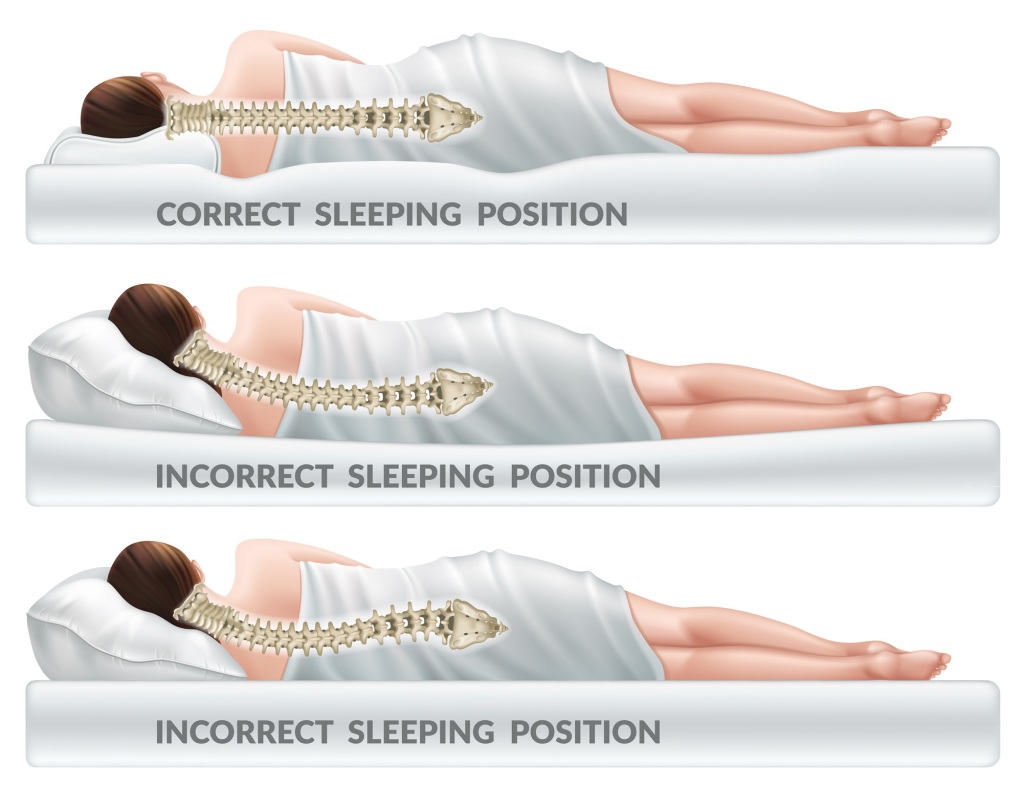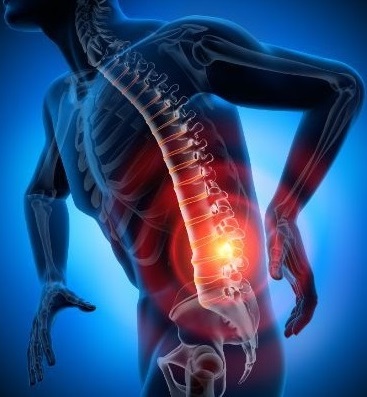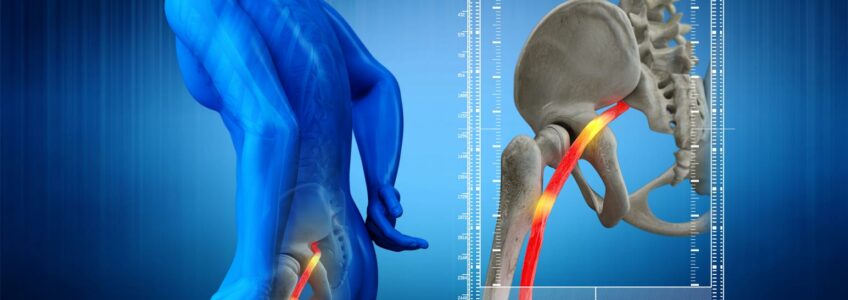Remedies for sciatic nerve pain can be a relief for patients suffering from this condition. Sciatic nerve pain can be a debilitating and limiting experience for those who experience it. From burning and numbness to sharp pain, sciatica symptoms can affect your quality of life and ability to perform daily activities.
In search of relief, many turn to various remedies and treatments to soothe discomfort and improve mobility. Furthermore, in this article, we’ll explore effective strategies for treating sciatic nerve pain, addressing options ranging from rest and exercise to alternative therapies and drug interventions.
Find out how you can manage and prevent these persistent pains to regain control of your health.
CONTENT:
- What makes sciatic nerve worse?
- What not to eat with sciatic nerve?
- Simple remedies for sciatic nerve pain relief
- Vitamins used in remedies for sciatic nerve pain
What makes sciatic nerve worse?
Sciatic nerve pain can be influenced by many factors, and some circumstances can aggravate existing symptoms. Here are some factors that can make sciatic nerve pain worse:
-
Incorrect or uncomfortable positions
Adopting incorrect positions or maintaining an inadequate posture can put extra pressure on the sciatic nerve, exacerbating the pain. Prolonged standing in one position or excessive bending can contribute to the deterioration of nerve health.
-
Excessive physical exertion
Strenuous physical activities or lifting weights without proper technique can cause additional stress on the spine and sciatic nerve.
-
Lack of physical exercise
On the other hand, lack of physical activity can cause the muscles around the spine to weaken and lose flexibility, increasing the risk of sciatic nerve compression.
-
Weight gain
Being overweight can increase pressure on the sciatic nerve. Losing weight can be a useful strategy for reducing discomfort.
-
Emotional stress
Stress and anxiety can contribute to muscle contraction, including those in the lower back. Also, This can exacerbate the pain associated with the sciatic nerve.
-
Insufficient warm-up before physical activities
Failure to properly warm up before starting physical activities can increase the risk of injury and worsening sciatic pain.
-
Injuries or conditions of the spine
The presence of herniated discs, spinal stenosis, or other spinal conditions can contribute to compression of the sciatic nerve and worsening of symptoms.
-
Menstrual periods
For some women, sciatica symptoms may be exacerbated during menstrual periods. Moreover, this happens possibly due to fluid retention and hormonal changes.
-
Smoking
Smoking can affect blood circulation and contribute to inflammation, which can make sciatica symptoms worse.
-
Improper posture during sleep
Adopting an inappropriate position while sleeping can cause discomfort and worsen sciatic nerve symptoms.

What not to eat with sciatic nerve?
If you’re experiencing sciatic nerve problems, there are certain foods and eating habits you should avoid to minimize inflammation and manage symptoms. Here are some recommendations on what to avoid in your diet if you have sciatic nerve problems:
- Processed foods and foods high in saturated fat
Avoid processed foods and those high in saturated fat, as these can contribute to inflammation. Moreover, fast food and fried foods can fall into this category.
- Sugar and refined carbohydrates
Excessive consumption of sugar and refined carbohydrates can contribute to increased inflammation. Avoid sweetened drinks, pastries and foods high in sugar.
- Excess caffeine
Excessive caffeine consumption can affect sleep quality and contribute to overall body stress. Additionally, limit your caffeine intake and monitor how it affects your symptoms.
- Alcohol
Alcohol can negatively impact sleep and increase inflammation. Moderate consumption or avoidance of alcohol may be beneficial.
- Excess salt
A high-salt diet can lead to fluid retention and increase pressure on the sciatic nerve. Reducing your salt intake can help manage this.
- Fat dairy products
Certain dairy products, especially those high in fat, can contribute to inflammation. Therefore, opt for lower-fat options or dairy alternatives.
- Red and processed meat
Red and processed meats can contain saturated fat and contribute to inflammation. Instead, choose lower-fat sources such as lean chicken, fish, or legumes.
- Gluten
For some people, gluten can contribute to inflammation. If you have gluten intolerance or related digestive symptoms, consult a nutritionist to evaluate the possibility of a gluten-free diet.
- Food additives and preservatives
Certain food additives and preservatives can have inflammatory effects. Try to avoid processed foods and opt for more natural and fresh options.

Simple remedies for sciatic nerve pain relief
1. Rest and Avoiding Uncomfortable Positions
One of the first measures recommended for treating sciatic pain is rest. Additionally, avoiding awkward positions or overexertion can help reduce pressure on the sciatic nerve.
2. Ice and Heat Therapy
Alternately applying cold and warm compresses to the affected area can help reduce inflammation and relax the muscles. Furthermore, this therapy can bring temporary relief and improve blood circulation in the affected area.
3. Spinal Stabilization Exercises
Certain exercises focused on strengthening the muscles around the spine can help maintain proper posture and reduce pressure on the sciatic nerve. Additionally, flexibility and stretching exercises can also improve symptoms.
4. Therapeutic massage
Massage can help relax tense muscles and improve blood circulation in the affected area. A therapeutic massage performed by a specialist can be an effective option in managing sciatic nerve pain.
5. Anti-inflammatory medication
Nonsteroidal anti-inflammatory drugs (NSAIDs), such as ibuprofen, can help reduce inflammation and pain. However, it is important to consult a doctor before starting any drug treatment.
6. Acupuncture
Acupuncture is a traditional Chinese therapy that involves inserting thin needles into specific points on the body. Moreover, studies show that acupuncture can be effective in reducing pain and inflammation associated with the sciatic nerve.
7. Physical Therapy
Physical therapists can develop a personalized exercise and therapy plan to improve mobility and reduce discomfort associated with sciatica.
8. Chiropractic Treatment
Chiropractic adjustments can help bring the spine into proper alignment, reducing pressure on the sciatic nerve. See a qualified chiropractor for evaluation and treatment.
9. Natural Supplements
Certain supplements, such as omega-3, curcumin, and bromelain, have anti-inflammatory properties and may provide benefits in managing sciatic pain.
Vitamins used in remedies for sciatic nerve pain
For patients with sciatic nerve problems, certain vitamins can play a role in maintaining nerve health and managing symptoms. In addition to the most commonly used vitamins B, D, and C, here are some other vitamins and nutrients that may be beneficial:
-
Vitamin E
Role: Vitamin E has antioxidant properties and can help protect nerve cells from oxidative stress.
Food sources: Nuts, seeds, wheat germ oil, spinach.
-
Vitamin A
Role: Vitamin A is essential for a healthy immune system, and a healthy immune system can help reduce inflammation.
Food sources: Carrots, sweet potatoes, spinach, pumpkin, beef liver.
-
Magnesium
Role: Magnesium helps relax muscles and may help reduce discomfort associated with sciatic nerve pain.
Food sources: Almonds, walnuts, seeds, spinach, beans.
-
Omega-3
Role: Omega-3 fatty acids may have anti-inflammatory effects and contribute to overall nerve health.
Food sources: Fatty fish (salmon, tuna), nuts, flax seeds, fish oil.
-
Zinc
Role: Zinc plays a role in the functioning of the nervous system and can support healing processes.
Food sources: Lean meat, pumpkin seeds, nuts, legumes.
-
Vitamin K
Role: Vitamin K may have beneficial effects on bone health and may help maintain the integrity of the spine.
Food sources: Brussels sprouts, broccoli, spinach, kale.
-
Vitamin B2 (Riboflavin)
Role: Riboflavin may help maintain nerve health and manage neuropathic pain.
Food sources: Dairy products, meat, nuts, legumes.
-
Vitamin B3 (Niacin)
Role: Niacin may help reduce inflammation and maintain a healthy nervous system.
Food sources: Lean meat, fish, nuts, legumes.
In conclusion, remedies for sciatic nerve pain can vary depending on the severity of the symptoms. It is always recommended to consult a medical professional before starting any form of treatment and follow a personalized plan tailored to individual needs. An integrated approach that combines several methods, such as physical therapy, regular exercise, and self-care measures, can provide the best results in managing and preventing recurrences of sciatic nerve pain.



